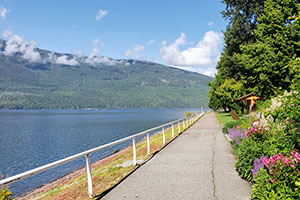Are you planning to work with a consultant on an asset management project? Read on if you:
- Plan to share the knowledge or tools developed by your consultant
- Would like to publish portions of the material created by the consultant—either on a website or in some other form
- Expect to edit, update or modify any final products (such as plans, asset data or other materials) in the future
A common challenge: Did you know that hiring a consultant to develop a product does not necessarily grant you the ability to modify, update or share the material? The consultant may retain sole copyright on deliverables, unless you specify a different arrangement. And if you don’t identify the file format you want, you might end up with something that you can view but not edit.
Tips and strategies
![]() If you would like to edit, adapt and share the finished work:
If you would like to edit, adapt and share the finished work:
Include clear statements regarding copyright and file format in your Request for Proposals and in the contract, and double-check the final deliverables to confirm that they meet your requirements.
While developing the Request for Proposals (RFP):
- Consult with employees to ensure that you understand which software and file formats they can work with.
- If your project includes creating a resource or tool that involves software new to your team, consider adding an employee training component to the RFP.
- Stipulate the file format(s) you require for the final deliverables.
- State the type of copyright you will retain for all deliverables.
At the contracting stage:
- Use your own contract template (if available).
- Ensure that you retain the appropriate copyright to the deliverables. Include wording that says you have either copyright assignment or copyright license (see “A note on copyright” below). Consult your legal counsel for examples of specific wording you can use.
- Specify your preferred software format for deliverables. Require all documents and data to be delivered in a format that you can edit (such as Microsoft Word or GIS-compatible files) if that is desirable, in addition to any non-editable versions you would like (such as PDF).
- Include in the contract your right to approve the deliverables.
As the project wraps up:
- Ensure that all the deliverables are complete, satisfactory and in the requested format(s).
- Check for the appropriate copyright statements (as stipulated in the contract) in the deliverables.
- Compare the results with the contract.
![]() A note on copyright…
A note on copyright…
- With copyright assignment, you become the owner of the material.
- With a copyright license, you are not the owner but you have a license and the right to publish or sublicense the material.
- Open-source content, software and tools are free for all to use, modify and share.
In some cases, copyright assignment (full ownership) is desirable, particularly for asset data that a consultant collects for your municipality; however, it can also make sense to share copyright with the consultant so that they can adapt the work for others. Consult with your legal counsel to ensure that you plan for all your needs. You should also check to see if there are specific requirements associated with any public funding you receive for the project.
![]() Key
Key
The freedom to share and publish knowledge and tools is key to building asset management communities of practice that benefit everyone. This is an important consideration for both municipalities and consultants when establishing copyright agreements.
 The open-source approach: Village of Nakusp, BC
The open-source approach: Village of Nakusp, BC
The Village of Nakusp, BC (population 1,605), had a limited budget for its project. The village found an asset management consultant that uses open-source software and tools. The open-source GIS software, called QGIS, is free to download and has no restrictions on the quantity of licenses issued. The spreadsheet-based asset management reporting tools used by the consultant were also open-source—built for the community, by the community. Any improvements are shared with all the municipalities that use the software. The use of open-source software and tools have allowed the village to grow its asset management initiative together with neighbouring municipalities.
Explore our tips for working with a consultant
Click on each tip below to learn how to anticipate and avoid common challenges.
Scoping your asset management project
Tips to help you clearly define and communicate your objectives to consultants
Read moreEnsuring continuation of asset management once consultant services are complete
Tips to engage your municipal team to ensure post-project momentum
Read more
This resource was developed by the Municipal Asset Management Program(MAMP)
MAMP was designed to help Canadian municipalities strengthen their infrastructure investment decisions based on reliable data and sound asset management practices. This eight-year, $110-million program was funded by the Government of Canada and delivered by the Federation of Canadian Municipalities. It was implemented in partnership with municipal, provincial and territorial associations and other key stakeholders.

